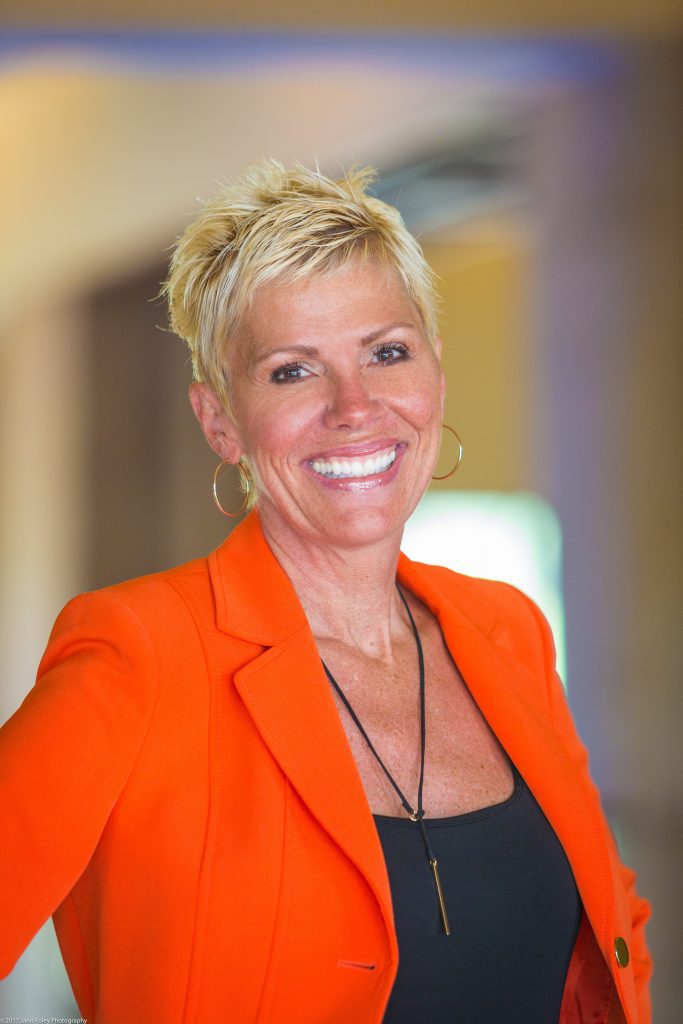“I have tried many times before to make changes and have not succeeded at sustaining those changes. What makes you think we can make it happen this time?”
Sustainable change requires small steps repeated consistently for long periods of time. Change means learning new things or doing things a different way which initially takes more thought, patience, and effort. Therefore, the person who wants to make change must really want to succeed. Otherwise, the pain of change will be greater than the pain of staying the same. It is human nature to choose the path of least resistance.
Change is really a step-by-step process. Attempts at change can fail when we miss any one of the following important steps. Regardless of whether we are just starting our business or already have an established business, the steps to change are the same.
Step One:
Establish a clear vision of what you want to achieve. What does change look and feel like? Define even the smallest details.
I am going to refer to your vision as your boat. Describe your boat. What does your boat look like? When and where is it going? How fast is it going? What crewmembers do you need? What are their roles? What capabilities do you want them to have? What character traits do you want them to demonstrate? What is the purpose of your boat? Why is it important to have your boat this way?
Be clear and confident. People will follow only those who are confident and know where they want to go and what they want to achieve.
Step Two:
Get the right crew on your boat. Do you currently have the right crew on your boat? Together and as a team, establish a standard of attitude and behavior. How will you interact with each other and your patients? What is appropriate and what is not? If, after you establish your new standard of attitude and behavior, there are still team members creating drama, stirring the pot, or unwilling to support your changes in both words and actions, LET THEM GO!
When you know you need to make a change, act quickly; don’t languish in your decision or you may lose your best people. Your action lets the drama queen, pot stirrer, or problem maker go somewhere else where their antics may be enjoyed or maybe allows them to start over and show up as someone new. Your action lets your team focus on the patients and lets the doctor and the manager go back to focusing on growing the practice by creating the ultimate patient experience.
Step Three:
Lead by example. Everything really does come from the top down. Set standards and don’t allow double standards. Live and maintain those standards. If you want your team’s focus to be what’s in the best interest of the patients and the practice, yours must be as well. Actions speak louder than words. Show up enthusiastic and on time to see your first patient and to the team huddles and meetings. Work in an emergency patient even when you don’t feel like it. Be positive, upbeat, and available to your team and your patients. In other words, do what you said, when you said, and how you said you would do it! Make sure the quality, service, and value is what you promised your patients. Tell the truth to your patients, your team members, and most of all yourself!
Step Four:
Create a systematic approach to all tasks and responsibilities that you would like to grow and change. Team meetings are an excellent way to introduce and implement new ideas, systems, or protocols. Introduce one idea at a time and go deep to resolve and come to a conclusion … versus creating a data dump of many ideas left unresolved that you must continuously revisit. Even if you accomplish only one item per monthly meeting you will have accomplished twelve new ideas, systems, or protocols per year.
Step Five:
Establish accountability and consequences. Accountability starts with everyone being equally accountable to the ideas, systems, protocols, and standards that were set. No double standards for anyone including the doctor or manager or you divide the team. Develop a protocol of consequences for when there is a lack of accountability. If an inappropriate behavior or attitude does not get addressed by the doctor or manager, it may be considered acceptable by the team. Early on, doctors or managers may not want to discuss something that is not working to avoid what they consider to be conflict. If they don’t discuss what is unacceptable or inappropriate the behavior or attitude will continue to occur. This only delays what would have been a simple conversation and allows the situation to fester and become a conflict ready to blow up at any time!
Monitor progress at your daily huddles or “accountability meetings.” They allow the team to talk about what’s working and what’s not on a daily basis and resolve issues together as a team. They are not for finger-pointing but to discuss the breakdowns or bottlenecks and how to avoid them in the future. When you resolve things on a daily basis it relieves stress and tension and prevents hard feelings from taking hold.
Finally
Maintain the new ideas, systems, or protocols as a team. There are no individual opt outs! If something is not working for an individual, rely on the team to help to resolve. You may find other team members agree and it may be necessary to adjust the protocol. Sometimes things look great on paper and yet don’t work well in real life.
To change we must go through a transformation zone. It’s not easy being in transformation. Changing thoughts, beliefs, and habits can create a sense of groundlessness and uneasiness. When we’re in the transformation, our first impulse will be to revert to old habits because they feel comfortable. Our goal is to hang in there until the change is complete. Knowing that transformations are part of the change process can help us have the courage to overcome the discomfort and uneasiness.
In the end, change requires letting go of what we’ve always known and done to allow in something new. We need to trust ourselves and others to unfold a new reality for us.
You are a choice away from change!

Judy Kay Mausolf is a speaker, author and dental culture specialist with expertise in helping others get happier and more successful! She coaches dentists and their teams how to become better leaders and deliver service with more focus resulting in a happier, healthier and higher performing culture.
FMI: 612-701-4922, www.PracticeSolutionsInc.net, JudyKay@PracticeSolutionsInc.net

